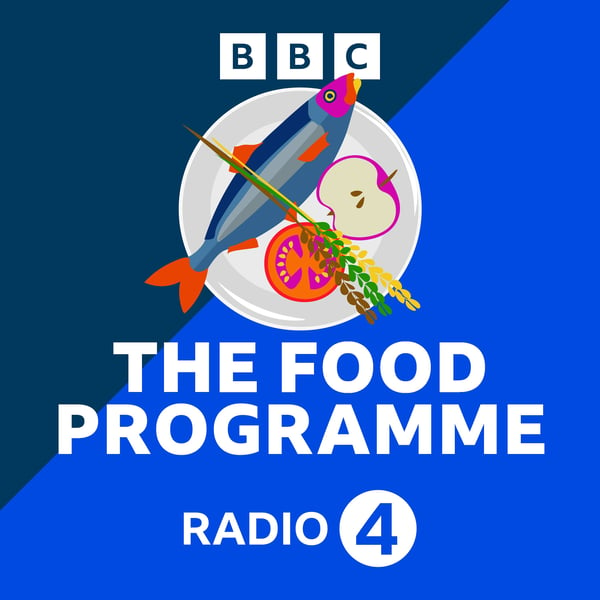Lessons from Leeds and Amsterdam on childhood obesity
The Food Programme
BBC
4.4 • 943 Ratings
🗓️ 3 May 2024
⏱️ 43 minutes
🧾️ Download transcript
Summary
Amsterdam and Leeds are two of the only places in the world to have cut rates of childhood obesity — and they’ve not done it by focussing just on diet. Sheila Dillon finds out how these two locally-based policies worked, and why the political circumstances around them were just as important as the policies themselves. She speaks to parents, academics, policy experts and public health leaders to find out what we can learn from these two remarkable interventions.
In Leeds, the local authority has prioritised health in the early years over the last 20 years, and part of that is working with the charity HENRY (Health, Exercise and Nutrition for the Really Young). HENRY has trained council staff to deliver courses helping parents to teach their kids healthy eating right from the start. In 2019 Leeds made national headlines becoming the first city in the UK to see a small, but significant drop in childhood obesity, and a bigger drop of 10% in the most deprived areas. The data shows that overall between 2009 and 2017 obesity dropped from 9.4% to 8.8% in four-to-five year olds, while levels remained unchanged in similar cities.
When it comes to improving children’s health, Amsterdam’s Healthy Weight Program attracted a lot of interest from around the world, becoming the shining example of what can be done to tackle high levels of obesity though action on a city-level. The Program’s main principle was ‘the healthy choice should be the easy choice’, aiming to reduce childhood obesity through healthy food and drink, exercise and better quality sleep. From 2012 to 2015 the percentage of children who were overweight or obese went down 12%, from 21% to 18.5%, with the biggest fall amongst the lowest socio-economic groups.
In the programme we hear from: Alice Wiseman, Joint Director of Public Health for Gateshead and Newcastle, and Vice President of The Association of Directors of Public Health; Dr Dolly Van Tulleken, policy consultant and visiting researcher at the MCR Epidemiology Unit at the University of Cambridge; Jaap Seidell, Professor of Nutrition and Health at The Free University in Amsterdam; and Kim Roberts, Chief Executive of the HENRY charity.
Presented by Sheila Dillon and produced by Sophie Anton for BBC Audio in Bristol
Transcript
Click on a timestamp to play from that location
| 0:00.0 | You don't need us to tell you there's a general election coming. |
| 0:04.7 | So what does it mean for you? |
| 0:06.7 | Every day on newscast we dissect the big talking points, the ones that you want to know more about. |
| 0:12.4 | With our book of contacts, we talk directly to the people you want to hear from. |
| 0:16.8 | And with help from some of the best BBC journalists, |
| 0:19.5 | we'll untangle the stories that matter to you. |
| 0:23.0 | Join me, Laura Kunsberg, Adam Fleming, Chris Mason and Patty O'Connell for our daily |
| 0:28.4 | podcast. |
| 0:29.4 | Newscast, listen on BBC Sounds. BBC Sounds. BBC Sounds, music radio podcasts. |
| 0:38.0 | Kids are getting fatter. |
| 0:40.0 | You see it in schools and the UK is a leader in the getting fatter and sicker stakes. |
| 0:46.1 | Can we change that? Well, 30 years of government-led obesity strategies and the like say no. But there are two cities showing how to get |
| 0:55.5 | results, Leeds and Amsterdam and they haven't done it by focusing on diet. This is |
| 1:01.8 | the food program. I'm Sheila Dylan and I'm here with those |
| 1:04.9 | city stories of success. Here's a simple question. If children are a country's |
| 1:11.2 | future, what does Britain's future look like when so many of our children start primary school already obese |
| 1:18.0 | and seemingly on the downward slope to chronic sickness? |
| 1:22.0 | And that's not because our nation has lacked policies meant to make our children healthier. |
| 1:27.7 | We've had 30 years of government obesity policy. |
| 1:31.0 | Since then we've had 14 government obesity strategies containing almost 700 |
| 1:36.8 | individual policies and yet no reduction in the prevalence of obesity or |
| 1:41.6 | related inequalities. |
... |
Please login to see the full transcript.
Disclaimer: The podcast and artwork embedded on this page are from BBC, and are the property of its owner and not affiliated with or endorsed by Tapesearch.
Generated transcripts are the property of BBC and are distributed freely under the Fair Use doctrine. Transcripts generated by Tapesearch are not guaranteed to be accurate.
Copyright © Tapesearch 2025.

